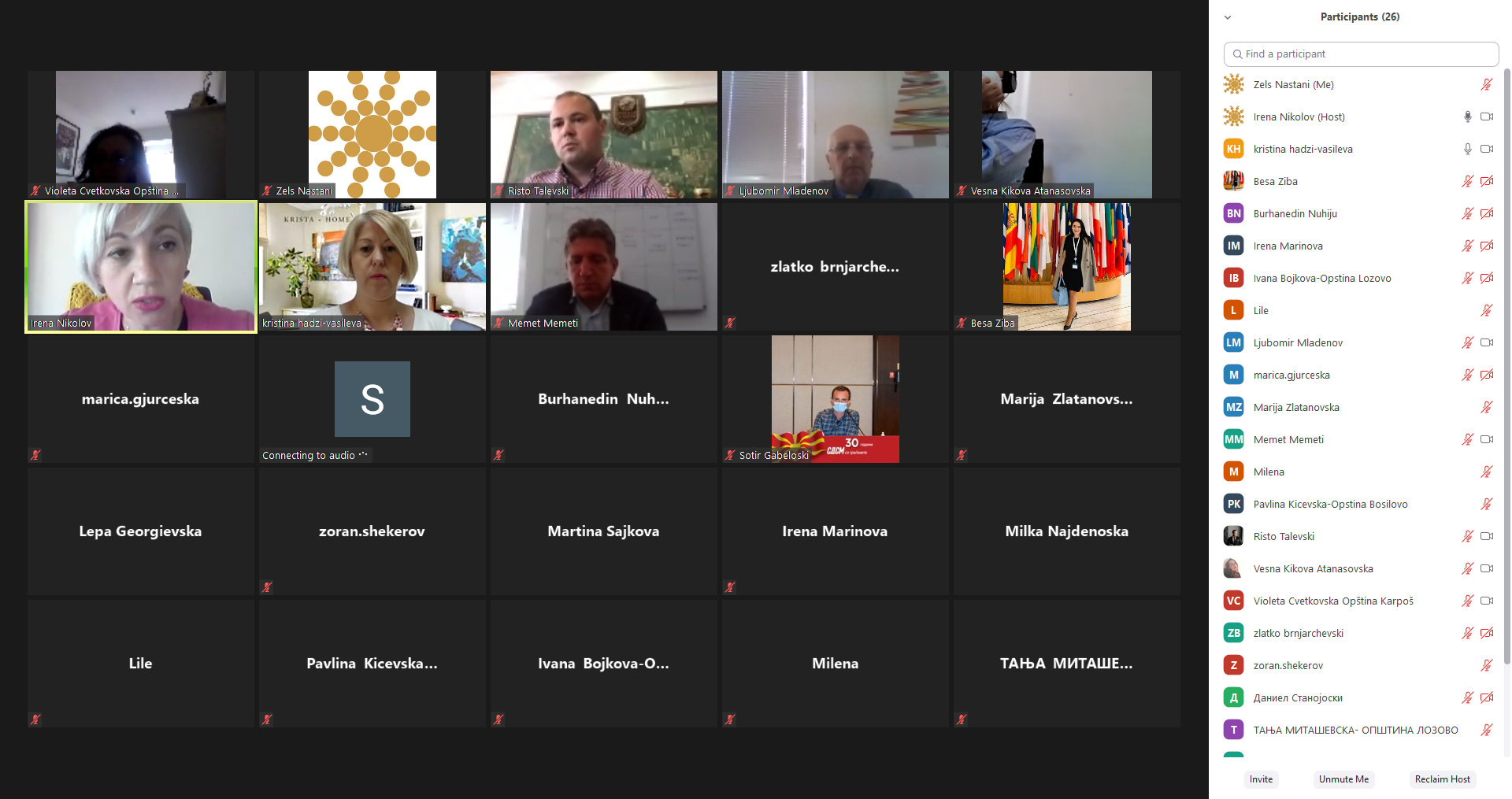ZELS organized a one-day online training for secretaries, employees in the finance sector/department and PR councillors from all municipalities on the topic “Gender Concepts and Gender-Responsive Budgeting”, within the project “Towards Gender-Responsive Municipalities: Strengthening Municipal Capacities for Gender Policy and Gender-Responsive Budget”, with the support of UN Women, Skopje. The training is part of the ZELS Training Plan in order to increase awareness of employees holding horizontal and vertical posts, in accordance with job systematization, on the gender issues and gender-responsive budgeting as a tool that contributes to determining the needs of women and men and allocating funds in accordance with the analyses made for the needs of the citizens.
Memet Memeti, expert and trainer for gender equality presented the legal framework that regulates gender issues and needs at a national and local level, what is the situation in the municipalities and what tools can be used to advance gender equality in municipalities, as well as overcoming the challenges that are most often faced by the coordinators for equal opportunities in the municipalities. Through the gender tree, which is a pictorial illustration of the situation with gender equality in the municipality in terms of locating the main problem, and thus the causes and consequences, he presented the way of working when creating programs and measures in the municipalities. In that regard, he spoke about the need to properly develop the programs and incorporate a gender aspect in them through a previously conducted analysis of the needs of women and men, then by setting indicators for achieving the set results, as well as to properly measure the desired results of the applied measures which are included in the municipal programs and for which funds are allocated in the budget. In an interactive session, the representatives from the municipalities presented examples from the planning of the programs and the need of cooperation with many persons holding horizontal and vertical posts in the municipalities in order to collect the necessary data and thus appropriate planning of activities and measures.
In the second part of the training, the expert Kristina Hadzi-Vasileva referred to the situation with gender equality in the municipalities during the pandemic with COVID-19, which revealed an even greater deepening of the gender gap in society. She presented the general results of the survey conducted by experts and a team of UN Women that are related to the impact of COVID-19 on the way of working and the need for adaptation, then on the measures taken by the municipalities to reduce the impact of the pandemic on citizens, then what the budget is spent on and how gender-responsive it is in relation to the measures taken and other survey results that lead to the conclusion that measures and adaptations are needed in order to properly allocate funds and labour in order to more easily deal with the pandemic. The municipalities shared their practices related to dealing with the pandemic, but also measures and activities they plan for the next period for their citizens from several categories and with different status, but with a special focus on the most vulnerable groups. In the end, through a quiz, the participants learned more about what a gender-responsive budget is, how it is planned, what resources are needed and examples of how this can be done.
The training was attended by roughly 30 representatives from the municipalities, i.e. a secretary, cabinet officials, representatives from finance and public relations departments and coordinators for equal opportunities, hoping that the strengthening of the capacities on this topic will also continue with the physical presence and under the organization of ZELS.






